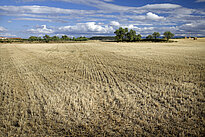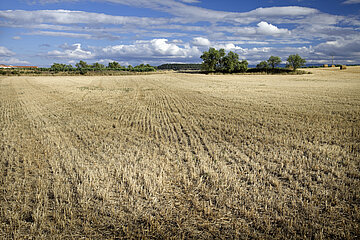Why agroholdings go bankrupt. The case of Razgulay
07 January 2019
Russia is one of the countries where large agroholdings face financial problems quite often. The list of the companies that have recently failed to fulfill their financial obligations includes Evrodon, Belaya Ptica, Pava and a number of other agroholdings. Our previous investigations of agroholdings’ bankruptcies in a number of countries revealed that the reasons for the financial troubles often stem from inside of these huge enterprises and, along with outdated management practices and mismanagement, include non-transparent governance structures, employees’ theft and even corrupt top management. In such conditions, even a single adverse outside event may be enough to plunge an enterprise into a severe crisis with no possibility to recuperate. A case in point is the agroholding Razgulay, once one of the largest agricultural companies in Russia.
Razgulay’s rise to prominence
Razgulay, at its time one of the largest agroholdings in the world, was founded in 1992 by a Russian businessman Igor Potapenko, who remained its major co-owner until 2010. The agroholding was specialized in production and processing of staple crops and operated in 15 regions of the Russian Federation. In 2006, Razgulay successfully raised $ 144 million through an IPO on Russia’s RTS exchange, which allowed it to continue expanding the business. The company used to operate 495,000 hectares of land and owned 12 grain elevators and 10 sugar plants as well as other assets throughout the country in 2011.
Getting into trouble
After the 2008 global financial crisis, which heavily affected the Russian agricultural sector, Razgulay's financial situation has deteriorated. As bad luck would have it, the company’s bondholders simultaneously called for repayment of the total bond value of 15.2 billion rubles($ 201.7 million) in 2009. This impelled Razgulay to declare a technical default of 8 billion rubles($ 106.1 million) on bonds. Fortunately, Russia’s Vnesheconombank (VEB) came to Razgulay’s rescue by opening a credit line and becoming one of the company’s shareholders. This helped Razgulay to repay and restructure its debts to some extent. Financial distress was fought off but it left a scar on the company's financial standing.
After Razgulay began to receive financial support from VEB, Mr. Potapenko sold his shares to AVG Capital Partners which became its largest shareholder with ca. 25 % of shares in 2010. In 2014, the former major owner of Razgulay Mr. Potapenko was suddenly detained on charge of concluding illegal land deals in 2007-2010. He was accused of establishing an intermediary company, which bought farmland at a low price from farmers and sold it at a higher price to Razgulay. The margin of some 20 billion rubles ($ 265.4 million) was transferred to a number of unknown organizations and subsequently disappeared. Although the charges against Mr. Potapenko were ultimately dismissed, this story has seriously damaged the company's image and aggravated its financial problems.
In October 2015, VEB and the Rusagro group – one of today’s largest Russian agroholdings – agreed on the transfer of VEB’s claimholder rights for Razgulay’s debts to Rusagro. The agreement also included the transfer of Razgulay’s shares owned by VEB. In November 2015, VEB fully exited from the capital of Razgulay with a simultaneous sale of its 19.97% stake for 33.9 billion rubles. Sergey Tribunskiy, head of investor relations at Rusagro, was appointed a new CEO of Razgulay at that time.
The point of no return
In April of 2017, The Moscow Arbitration Court opened bankruptcy proceedings against Razgulay Group upon the lawsuit from Rusagro. At that point, Razgulay owed 13 billion rubles to Rusagro. As a result of the bankruptcy proceedings, ownership over Razgulay’s three sugar factories in the Oryol and Kursk regions, 90,000 hectares of farmland and a buckwheat processing plant in the Voronezh region were transferred to Rusagro. In addition, part of the assets of Razgulay were acquired by Agrocomplex named after Tkachev. In particular, Agrocomplex bought 30,000 hectares of farmland and allocated them for rice production. This allowed Agrocomplex to more than double the area under rice. Among the buyers of the remaining sugar factories, elevators and farmland of Razgulay were one of Russia’s largest sugar producers Pokrovsky Group, as well as Dominant Group owned by the Demidovs family, and Steppe Agroholding, part of the AFK Sistema business group owned by Mr. Evtushenkov.
Lessons learned
On the face of it, the collapse of Razgulay could not have even happenedif there had been no disruptive external events such as the financial crisis of 2008 and simultaneous repayment claims fromall bondholders of the company. Yet, these events seem to have been just the triggers for a wave-like downfall, which primarily resulted from the problems inside of the company. Obviously, the company’s owners not only failed to make right conclusions from the first wave of financial distress but they also continuously involved in non-transparent actions that caused further waves of financial problems. In parallel with frequent changes in top management, these problems ultimately led to bankruptcy and divestiture of the company’s assets.







